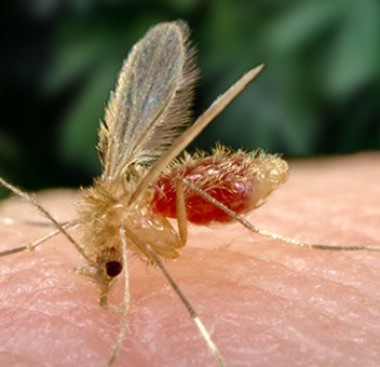ANIMAL RIGHTS NEWS NOVEMBER 97
By: Staff Date: 01/16/2012 Category: | Animal Rights Extremism |
British Parliament gets hunt ban bill
On November 3, the British press reported that hunt saboteurs had warned they would "step up their activities" if the government did not find time to consider a private member's bill to ban fox hunting.
On November 28, Parliament voted 411-151 to give the bill a second hearing, thus beginning a long process toward passage or defeat.
Paul Gammon, a spokesmen for the saboteurs told the British news service that "We expect our activities to increase enormously if the bill is suppressed or delayed because people won't stand for it and that is the last thing police forces need. Any delay on this legislation opens the doors from extremists on both sides."
The bill under consideration would ban the use of dogs for hunting any animals and impose a maximum six-month jail term and fines of up to £5000 for huntsmen and those who allow hunting on their land.
The bill faces an uphill battle that could take as long as two years.
Los Angeles may get dead dogs on billboards
The Associated Press reports that the City of Los Angeles Animal Regulation Commission is considering a billboard campaign that features 10 barrels of dead pets and the message "Birth Control Saves Lives."
City Council is considering placement of the message on 50 billboards.
The Los Angeles Animal Regulation Commission is also seeking a $500 "spay or pay" intact pet license with exemptions for owners who participate in animal events. The Animal Issues Movement supports the proposal but wants breeding restrictions added.
British activist sentenced to 15 years for arson
Animal rights activist Barry Horne was found guilty of arson and attempted arson at British shops and was sentenced to 18 years in jail. The sentence is considered the longest ever for animal rights terrorism.
Horne has a long history of activism. In 1988 he was fined £750 and given a suspended sentence for trying to steal a dolphin from a marine park. In 1991, he was given a three-year sentence for possessing an incendiary device and in 1995 he was sentenced to 80 hours community service for his participation in a disturbance at a scientific conference.
Horne conducted two hunger strikes while in jail awaiting trial on the arson charges. He demanded that the government end animal testing, but he ended the strikes without success.
Animal rights activists around the world supported Horne's hunger strikes with letters to the prisoner and to the government. Horne's campaign against British shops caused damages in the millions of pounds.
Activists successful in halting deer hunts on federal land
The Humane Society of the US and other local and national animal rights groups convinced a judge that shooting deer in a national preserve violated the national Park Service's own policies requiring scientific assessment before taking such measures.
The issue came to a head when a US District Court judge halted a deer cull at Cuyahoga Valley National Recreation Area in northern Ohio. Sharpshooters were set to kill about 470 of the area's 1030 deer to reduce accidents and protect the habitat from overgrazing, but the judge issued a preliminary injunction against the cull.
Animal rights protesters disrupt scientific meeting
More than 100 animal rights protesters tried to storm the front entrance of the Anaheim, California, Convention Center in attempts to disrupt the annual conference of the American Association for Laboratory Animal Science in November, but they were turned away by riot-clad police officers.
Protesters, many of them wearing black hoods, confronted scientists outside the center, shouted insults, blocked traffic, and clashed with police. At least eight protesters were arrested, five of them on suspicion of assaulting police officers, one on suspicion of malicious mischief, and two on suspicion of assault on conference participants. Police used pepper spray and Mace to control the crowd.
According to the Orange County Register, police learned about the planned demonstration on an animal rights website. Information on the website suggested that women protesters dress as though they were pregnant to get sympathy from media and police.
The planned protest was similar to those that have plagued primate research centers throughout the US and resulted in 30 arrests in Davis, California, and 60 arrests in Atlanta, Georgia, earlier this year.
Fur Free Friday ends in arrests
More than 60 demonstrators were arrested on November 28 as they initiated a month-long anti-fur campaign with protests at department stores in Dallas, Texas; Minneapolis, Minnesota; San Francisco and Beverly Hills, California; Albany, Garden City, and Manhattan, New York; and Eatontown, New Jersey.
The activists locked themselves to awnings, bound themselves together, and occupied a construction crane in their efforts to turn people away from furs as gifts or personal purchases.
The Animal Rights Direct Action Coalition issued a statement targeting Federated Department Stores, owners of Macy's and Bloomingdale's stores.
The longer anti-fur campaign is part of a world-wide strategy to end the trapping and ranching of animals for fur. While demonstrators block sidewalks and insult fur store customers in the US, the British government is considering banning fur farming and the US government has avoided a trade war with Europe by agreeing to end the use of leghold traps to trap fur-bearing animals.
However, the fur industry seems to be on the rebound. Not only are sales up, models who previously refused to wear fur are now modeling fur clothes and accessories for an increasing number of designers.
PeTA targets snow polo competition
Polo International plans to host its second snow polo event in Aspen, Colorado, January 9-11, but People for the Ethical Treatment of Animals has generated protests to the event and asked for it to be canceled.
PeTA published an item about the event in its Animal Times, claiming that the horses will wear two inch spikes on their feet and that the event is played on a frozen lake. According to Polo International's Teresa Carranco, the event will take place on a carefully groomed snow-packed field and the horses will wear the same shoes they wear for working on hard-packed snow. These shoes have cogs on the heels and deep rims on the toes. Some are fashioned with frost nails about one-quarter inch long.
The first snow polo event in Aspen was held two years ago. No horses fell or were injured, and veterinarians were on hand to make sure the horses were fit enough to compete.
Vegetarians can buy meat-free camera
The Ricoh RDC-300 digital camera has been certified as meat-free by the Vegetarian Society because it does not use "animal unfriendly film."
Photographing film uses gelatin, a gelling agent derived from animal bones and skin as a byproduct of the slaughter industry. Digital cameras feed the images to a computer or television screen for viewing and editing instead of using film that must be developed and printed.
About The Author
All Authors Of This Article: | Norma Bennett Woolf |












